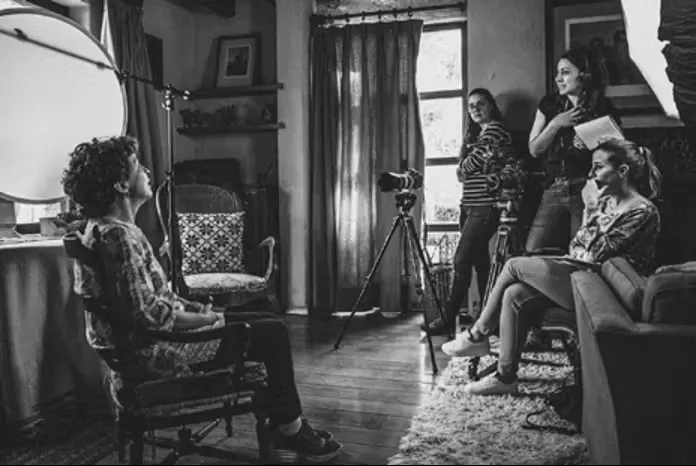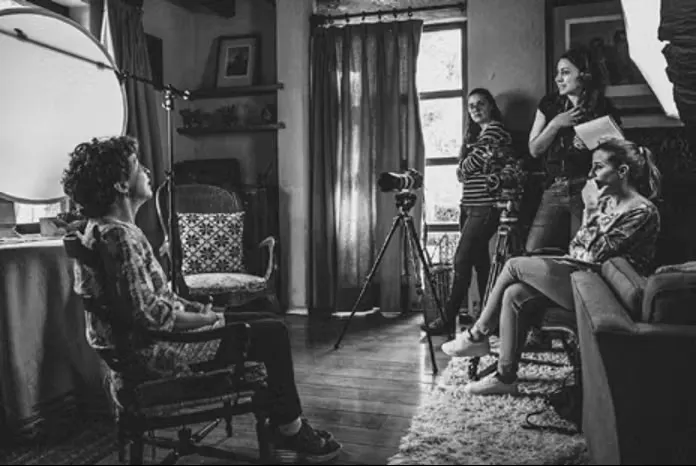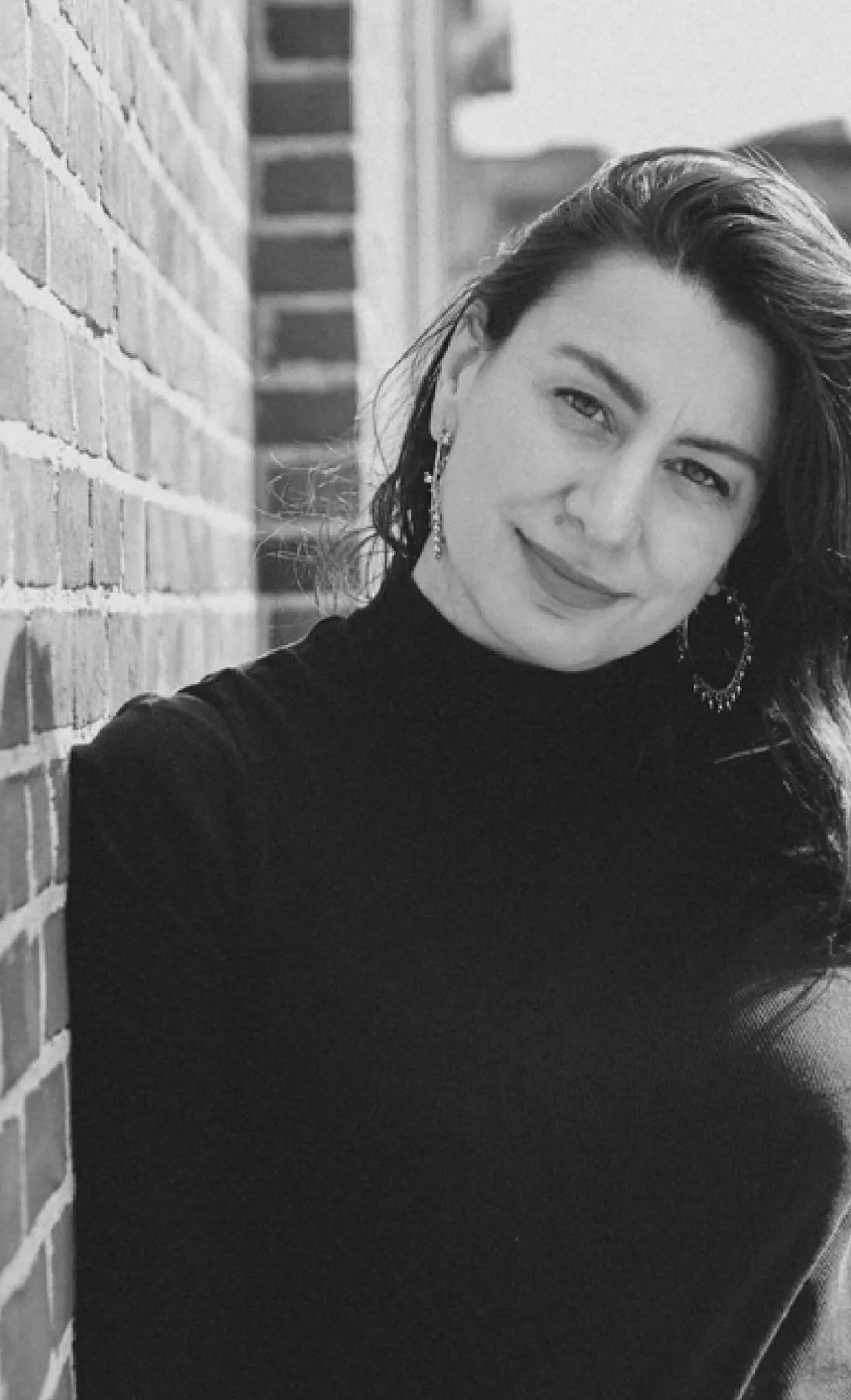You are from Ibiza, but you have been living in New York for more than a decade; do you think there are similarities between Ibiza and New York?
Both the one and the other are magnets for attracting very different people, with very different backgrounds and stories, who tend to travel a lot and spend time in other places, and this arouses an interest in welcoming people of all kinds. The two spaces allow you to experiment, Ibiza is more focused on tourism, but I think there is a lot of room to play and experiment, in a playful way, in an original way and I think it also happens to New York, with new businesses, shops, restaurants... Ways to do things that you can’t find anywhere else. In addition, both places are very tolerant and give a feeling of freedom.

¿What do you miss about New York when you are in Ibiza and what do you miss about Ibiza when you are in New York?
When I’m in New York, I miss the calm, the tranquillity, the nature of Ibiza. And when I’m in Ibiza, I miss the activity, the speed, and the urban, dynamic and cosmopolitan aspect of the city.
Do you feel that you have had to prove twice as much for being a woman in such a men’s industry?
I think that, in general, it is a complicated industry for everyone because there is no clear path to follow or the steps to take. For everyone, there is a part of searching, of finding your voice and your individuality to tell stories. In my case, being a woman is part of me, of my identity and that conditions the things that interest me, so, naturally, I associate myself with other women for documentaries and other works. It is true that sometimes
I am at a festival, and I realise that I am the only woman, but it is also true that a lot has changed. Since I started 20 years ago until now, it is noticeable that there is a much greater presence of women. Yes, it has led me to reflect on what I can contribute, due to my age, my gender, my interests, my identity, my values, and my experience. In the end, it is part of my subjectivity.
Why do you think there are so few women in the industry?
There are women in the industry, but I would say in fewer positions of power. In general, there are fewer female directors and fewer directors of photography, but for example, the last five Goya awards for new directors have gone to women. Having said that, it is clearly changing. It is something that’s more general in European society, in positions of power there are more men, although there are more and more women finding their place as directors, producers, editors...

How has being a woman helped you and how has it been detrimental to you?
It has helped me to have a fluidity in the subjects that I take, in the subjects that interest me. For example, I went to Tanzania to work on access to land for women in the Kura tribe, and what we had in common with them is that we were women, which meant they talked to us because of our status as women; it made them open up and share their stories. Being a woman gives me access to the type of stories that I am looking for.
Let’s talk about your short film, 6 am. How did the idea come about? Why Sigur Ros?
It’s a short film I made when he had been in NY for a year. and the idea came about because I was overwhelmed by the city. The arrival was harder than I had anticipated, and so I sought to humanize the
city, show its beauty and, in fact, there is a lot of sea and water in the short film; it is a story of light and space, at that magical hour of dawn. It was time to fall in love with the city; for me, it wasn’t so much the skyscrapers or the yellow taxis, it was finding a moment of calm in such a dynamic and exhausting city.
Finding music was also a process, I already knew Sigur Ros, and this group allows the use of their music for non- commercial projects. It’s hypnotic, it has a crescendo, but it progresses in a way that works to bring the different locations together and the change from darkness to sunlight helped me to make a cohesive story.
We have read that this short film symbolizes the possibilities presented by a new day. What possibilities did it open up for you?
It is a very important short film in my career because it was the first short that won the Oscar at my University, I was the first Spanish person to win this Oscar and I immediately got a job... These awards help filter and make people watch and listen to you among all the other people who make short films. Despite the fact that I only had experience as a student and had taken part in some things, it helped me get a job and raised my public profile so that people could take account of me.
I must say that just making one good short film is not enough; you have to keep working and it doesn’t guarantee anything, it’s just a good start. On a personal level, it made me wonder whether, in the long run, I could maybe make a living from this. It gave me security and made me think that maybe the dream of making movies was possible.

Your work has many social and protest overtones. Do you think that having a job that many people see carries with it responsibilities regarding what you report and how?
Yes, because whatever doesn’t get coverage, does not exist. The stories we tell are a seed for change that can reach many people. You can do it from a place of connection, from what unites us or tell it from what separates us, from a sensational or histrionic standpoint. I have thought a lot about who am I to tell certain stories? And yes, I like to do it honestly, with empathy and creating a space where we can see ourselves reflected, from our humanity. It seems to me that our work is very powerful; many times, what we see on TV, series...
Makes us connect with people who, at first, have nothing to do with ourselves or we internalize what is “good” or “bad” or “normal”. So yes, it is important to choose what counts and think about how you tell it.
From among your many important awards—such as more than 10 Emmys or the Student Academy Awards—which one are you most proud of?
I am very happy that my work has been acknowledged in this way, although winning awards has never been the goal. I like my work and its process. It’s always a joy but it’s not what I’m after. The one I feel most proud of is the student Oscar, because I made the short film without any expectations, freely, and I had a great time doing it. It’s obvious that I didn’t expect it, I was still in class and I’m from Ibiza, but my teachers chose it and, when I won, it was a total surprise. And then it was a lot off un, they took me to Los Angeles, a super hotel, my family came, they took me to the gala, cocktails... I don’t know, it was something I did on my own, very internal, a very nice process and yes, I am proud of winning a short film from the NY public university when I still had no contacts. It impacted me a lot, it brings back very good memories and made me see that things are possible.
Of all your professional facets as a director, screenwriter, producer, which one do you like the most?
They feed off each other and each one has things that I like. I really like writing alone, at home, thinking about the story and imagining what the characters are like.
It accompanies me during the day. I also like to work on the set, as a team, shooting, solving problems, sharing, delegating, sometimes improvising. Filming forces you to be very present, you can’t be with your head elsewhere, you have to be very focused on what is happening. And when I’m editing, on my own again, putting together the puzzle, thinking of solutions... Each part makes the work diverse, and you don’t get bored.
Do you think that it is a luxury nowadays to work at something that you love? How much does talent, budget and luck have to do with it?
More than a job, I feel it is a vocation. It is very nice to work at what I love. Much of my life has to do with my work, such as the fact that it can connect me with different people, stories, countries, realities, worlds... It seems to me a privilege. It’s like having access to many lives, having interesting conversations that make me grow. Yes, my work is closely linked to my life.
Of course, there is a way in which chance plays a role that you do not control; sometimes you work a lot and do not see the results. I think there are many people with a lot of talent, but, for me, the ability to work and the hours you put in are more important are sacrifices. Talent does not carry as much weight. And nowadays the budget, what with having access to cheaper phones or cameras, is no longer so necessary. You can film without a big budget. The question is to professionalize it, and there you already need a bigger budget. When I did not have the budget, I have looked for projects that I could adapt to and see how I could finance them. It has more to do with how much you want to do it, with passion, commitment and getting down to work and moving forward. That’s it.
